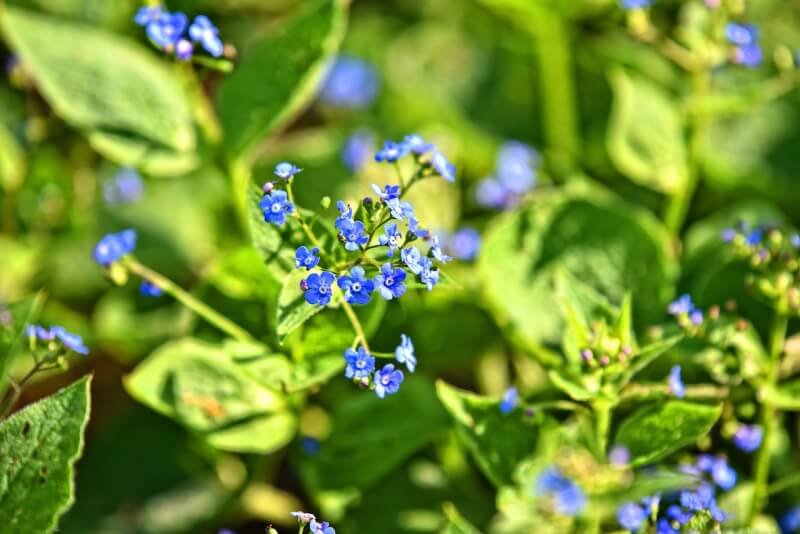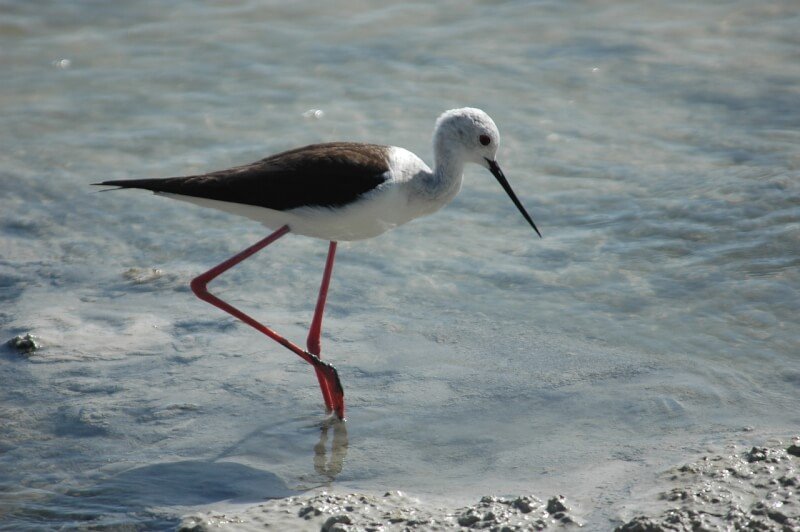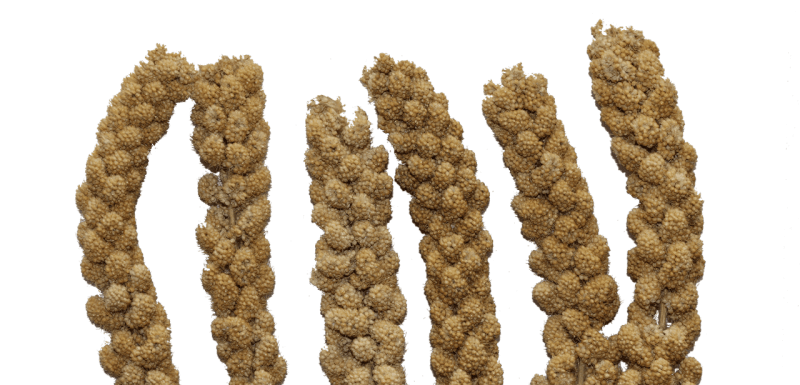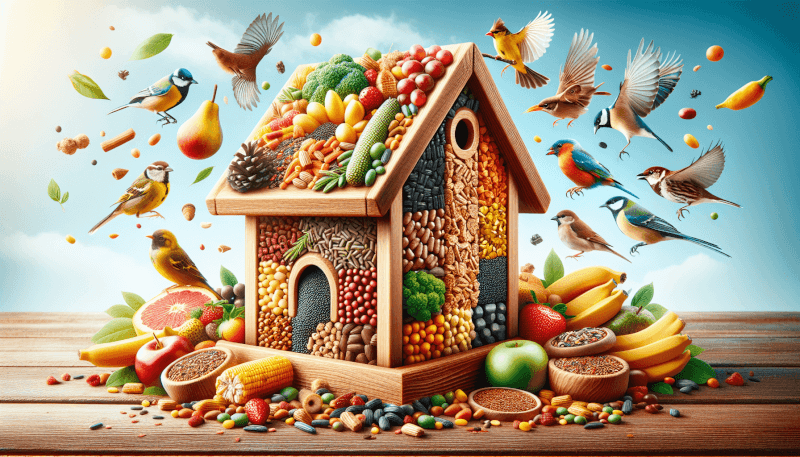If you’re a proud owner of an avian friend, you know how important it is to provide them with the best nutrition possible. Just like us, birds need a balanced diet to thrive and stay healthy. But with so many options available, it can be overwhelming to figure out what exactly constitutes the best nutrition for your feathered companion. Look no further, as this article will guide you through the essentials of avian nutrition, helping you make informed choices that will keep your avian friend chirping with joy.
Species-specific Diet
When it comes to providing the best nutrition for your avian friend, it is crucial to research and understand your bird’s specific species. Different species of birds have different dietary requirements, so it is important to tailor their diet to meet their unique needs. By identifying your bird’s species, you can gather information about their natural diet and mimic it as closely as possible.
Researching Your Bird’s Species
Take the time to research and gather information about your bird’s species. Look for reputable sources such as books, websites, or experts in avian nutrition. Understanding your bird’s natural habitat, behaviors, and dietary preferences will provide valuable insight into their nutritional needs.
Understanding Their Natural Diet
Once you have identified your bird’s species, it is vital to familiarize yourself with their natural diet. Some birds are primarily seed eaters, while others consume a combination of seeds, fruits, vegetables, and even small insects. By understanding their natural diet, you can ensure that their nutritional needs are met and provide them with a diet that closely resembles what they would consume in the wild.
Mimicking Their Natural Diet
To provide your bird with a species-specific diet, it is important to mimic their natural diet as closely as possible. This means incorporating a variety of seeds, grains, fruits, vegetables, protein sources, calcium-rich foods, and appropriate supplements into their daily meals. By replicating their natural diet, you can promote optimal health and wellbeing for your avian friend.
Seeds and Grains
Seeds and grains are a vital component of a bird’s diet and should be included in their daily meals. However, it is important to offer a variety of seeds and grains to ensure that your bird receives a well-rounded and balanced diet.
Variety of Seeds and Grains
Different types of seeds and grains provide various essential nutrients for birds. Some common seeds and grains include sunflower seeds, millet, quinoa, oats, and wheat. Offering a variety of these options will help ensure that your bird receives a wide range of nutrients.
Seed Mixes vs. Individual Ingredients
Seed mixes can be a convenient option for providing a variety of seeds and grains in one package. However, it is important to carefully read the labels and choose mixes that include a diverse assortment of ingredients. Alternatively, you can create your seed mix by purchasing individual seed and grain components and mixing them yourself. This way, you can have control over the variety and quality of the ingredients.
Sprouting Seeds for Added Nutrition
Sprouting seeds before offering them to your bird can greatly increase their nutritional value. Sprouted seeds are easier for birds to digest and can provide additional vitamins and minerals. You can sprout seeds by soaking them in water until they begin to germinate, and then rinsing them regularly until tiny sprouts appear.

Fresh Fruits and Vegetables
In addition to seeds and grains, fresh fruits and vegetables are essential for your bird’s health and wellbeing. They provide a wide range of vitamins, minerals, and antioxidants that are crucial for their overall health.
Safe and Beneficial Fruits for Birds
Certain fruits are safe and beneficial for birds, including apples, bananas, grapes, melons, berries, and citrus fruits like oranges and lemons. However, it is important to remove any seeds or pits, as they can be toxic to birds. Additionally, some fruits, such as avocado, should be avoided due to their potential toxicity.
Nutritious Vegetables to Include
Vegetables are also a crucial part of a bird’s diet. Some suitable options include leafy greens like spinach and kale, carrots, bell peppers, broccoli, and peas. These vegetables are rich in vitamins and minerals, providing essential nutrients for your bird’s optimal health.
Cleaning and Preparing Fresh Produce
Before offering fresh fruits and vegetables to your bird, it is essential to thoroughly clean and prepare them. Wash the produce under running water to remove any pesticides or contaminants. Remove any seeds, pits, or toxic parts, and cut the fruits and vegetables into small, bird-sized pieces for easy consumption.
Pellets and Commercial Diets
Pellets and commercial diets can be beneficial in ensuring that your bird receives a well-balanced and complete diet. However, it is important to select high-quality pellets and use them as a supplement rather than the main component of your bird’s diet.
Selecting High-Quality Pellets
When choosing pellets for your bird, look for options that are made from natural ingredients and free from artificial preservatives, colors, and flavors. High-quality pellets should contain a balanced blend of grains, fruits, and vegetables.
Introduction to Pellets
Introduce pellets gradually to your bird’s diet by mixing them with their regular food. Initially, your bird may be hesitant to try the new pellets, but with time and patience, they may develop a taste for them. Pellets can provide essential nutrients that may be lacking in other components of their diet.
Supplementing with Fresh Foods
While pellets can provide a balanced diet, it is crucial to supplement them with fresh fruits, vegetables, and other foods. Fresh foods offer variety, texture, and added nutrients that can further enhance your bird’s overall health. Aim to offer fresh foods daily, alongside pellets, to provide a well-rounded diet.

Protein Sources
Protein is essential for your bird’s growth, development, and overall health. Including a variety of protein sources in their diet is crucial to meet their dietary requirements.
Lean Meats and Poultry
Lean meats and poultry, such as chicken or turkey, can be incorporated into your bird’s diet in small amounts. Ensure that the meat is cooked thoroughly and free from any seasonings or additives that may be harmful to birds.
Eggs as a Protein Option
Eggs can be a nutritious protein source for your bird. Offer cooked eggs, such as hard-boiled or scrambled eggs, as an occasional treat. Eggs provide essential amino acids and are easily digestible for birds.
Legumes and Nuts for Plant-Based Protein
For plant-based protein options, consider incorporating legumes and nuts into your bird’s diet. Chickpeas, lentils, or kidney beans can be cooked and offered to your bird. Nuts, such as almonds or walnuts, can be given in small amounts as a treat.
Calcium-Rich Foods
Calcium is crucial for your bird’s bone health, eggshell formation, and proper muscle function. Including calcium-rich foods in their diet is essential to prevent deficiencies and promote overall wellbeing.
Importance of Calcium for Birds
Calcium is essential for birds of all ages. It helps maintain strong bones, supports muscle function, aids in egg formation, and contributes to proper nerve transmission. Calcium deficiencies can lead to health issues, such as weakened bones or egg-laying problems.
Calcium Sources for Avians
There are various calcium-rich foods that you can include in your bird’s diet. Some options include dark leafy greens like kale or collard greens, calcium-enriched pellets, cuttlebone, and eggshells. Ensure that the eggshells are thoroughly cleaned, crushed into small pieces, and baked to eliminate any potential bacteria.
Avoiding Dangers of Excessive Calcium
While providing adequate calcium is crucial, excessive calcium intake can also be harmful to birds. It is important to maintain a balance and not over-supplement with calcium-rich foods. Moderation is key to ensure your bird’s health and avoid any potential complications related to excessive calcium levels.

Vitamin and Mineral Supplements
In some cases, avian supplementation with vitamins and minerals may be necessary to ensure that all nutritional needs are met. However, it is important to consult with a veterinarian before introducing any supplements to your bird’s diet.
When Supplements Are Necessary
Supplements may be necessary if your bird has specific dietary needs or health concerns. For example, if your bird has been diagnosed with a vitamin deficiency or is recovering from an illness, they may benefit from additional supplementation. Always consult with a veterinarian to determine if and what type of supplements are appropriate for your avian friend.
Finding Reliable Avian Supplements
When it comes to avian supplements, it is crucial to look for reliable brands that specialize in avian nutrition. Ensure that the supplements are specifically formulated for bird species and follow the recommended dosage instructions provided by the manufacturer.
Consulting a Veterinarian
Before introducing any supplements to your bird’s diet, it is always recommended to seek guidance from a veterinarian who specializes in avian health. They can assess your bird’s specific nutritional needs and provide personalized recommendations to ensure the best health outcomes.
Proper Hydration
Water is a vital component of a bird’s diet as it plays a crucial role in digestion, temperature regulation, and overall health. Providing clean and fresh water is essential to keep your bird hydrated.
Clean and Fresh Water
Ensure that your bird has access to clean and fresh water at all times. Change the water in their bowl at least once a day, or more frequently if necessary. It is also important to clean the water bowl regularly to prevent the buildup of bacteria or algae.
Encouraging Drinking in Birds
Birds may not always drink enough water on their own, especially if they are fed a diet that contains high water content foods like fruits and vegetables. You can encourage drinking by occasionally misting them with water or providing a shallow water dish for them to bathe in. This can help ensure that they are adequately hydrated.
Monitoring Water Intake
Keep an eye on your bird’s water intake. If you notice a sudden increase or decrease in their water consumption, it may be a sign of an underlying health issue. Contact a veterinarian if you have concerns about your bird’s water intake or if they show signs of dehydration.

Avoiding Toxic Foods
It is important to be aware of foods that can be toxic to birds and ensure that they are kept away from your avian friend. Some common foods that can be harmful to birds include chocolate, caffeine, alcohol, avocados, onions, garlic, and certain fruits with toxic pits or seeds.
Common Foods Harmful to Birds
Chocolate, caffeine, and alcohol are toxic to birds and should never be given to them. Avocados contain a substance called persin, which can be harmful or even fatal to birds. Onions and garlic, in large amounts, can also be toxic. Additionally, fruits like cherries, peaches, or apples should be offered without their pits or seeds as they can contain harmful compounds.
Toxicity Symptoms to Watch For
If your bird accidentally ingests a toxic food, they may exhibit various symptoms, including vomiting, diarrhea, tremors, difficulty breathing, or seizures. If you suspect that your bird has consumed something toxic, seek immediate veterinary attention.
Creating a Safe Environment
To prevent accidental ingestion of toxic foods, ensure that your bird’s environment is safe and free from any potential hazards. Keep toxic foods out of reach, secure garbage cans, and be mindful of any substances that may be harmful to your avian friend.
Monitoring Dietary Changes
When introducing new foods to your bird’s diet or making changes to their existing diet, it is essential to do so gradually and monitor their reaction. Birds can be sensitive to dietary changes, and sudden shifts can disrupt their digestive system.
Gradual Introduction of New Foods
When introducing new foods, start with small amounts and gradually increase them over time. This allows your bird’s digestive system to adjust and minimizes the risk of digestive upset. Monitor their reaction to new foods, and if any adverse effects are observed, consult with a veterinarian.
Observing Your Bird’s Reaction
Observe your bird’s behavior, droppings, and overall health when introducing new foods or making changes to their diet. If you notice any negative changes, such as changes in appetite, droppings, or energy levels, it may indicate that the new food is not suitable for your bird.
Adjusting Diet According to Needs
Every bird is unique, and their dietary needs may vary. Monitor their health and consult with a veterinarian to determine if any adjustments are necessary. Your bird’s diet should be tailored to their specific requirements, and periodic evaluations can help ensure they receive the best nutrition possible.
In conclusion, providing the best nutrition for your avian friend requires research, understanding their species-specific diet, and mimicking their natural diet as closely as possible. By incorporating a variety of seeds, grains, fresh fruits, vegetables, protein sources, calcium-rich foods, proper hydration, and avoiding toxic foods, you can promote optimal health and wellbeing for your bird. Regular monitoring and consulting with a veterinarian will ensure that your bird’s diet is adjusted according to their individual needs, supporting a long and healthy life.



